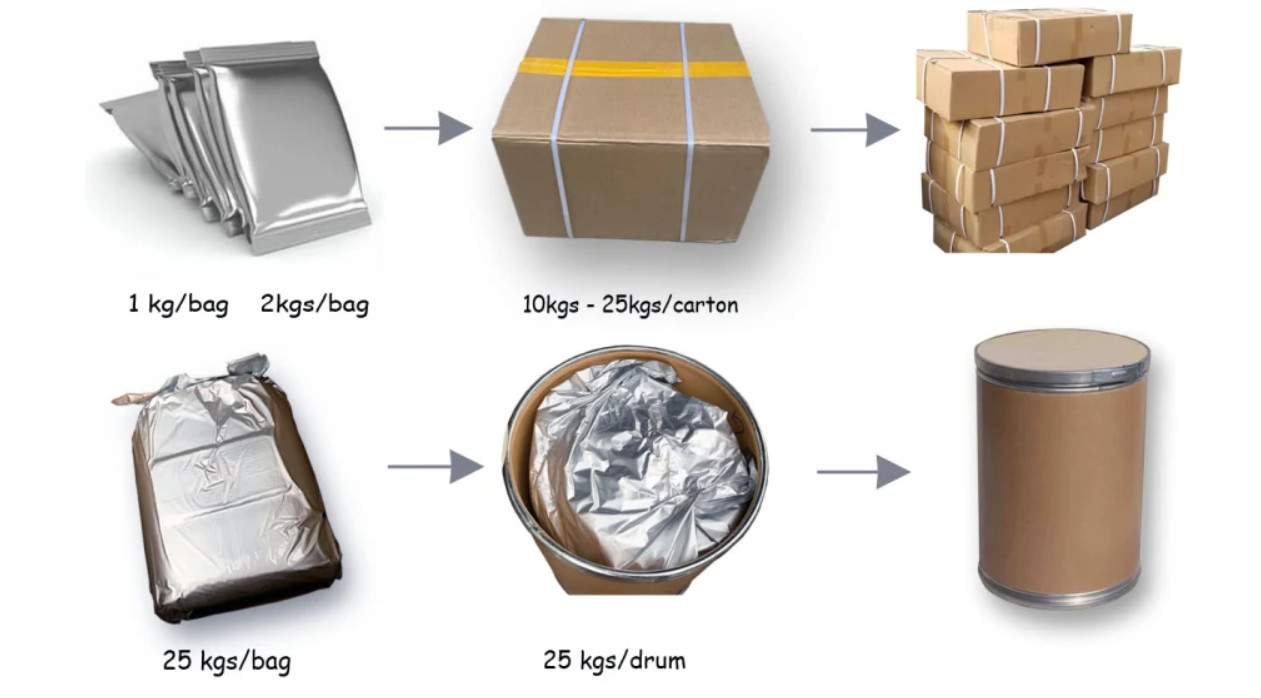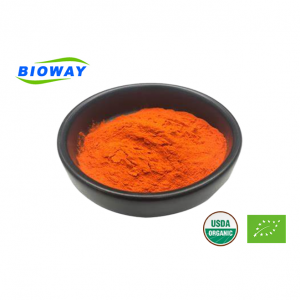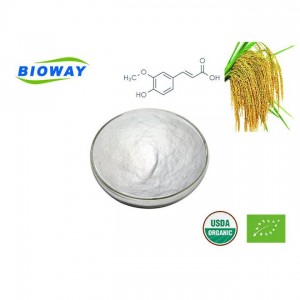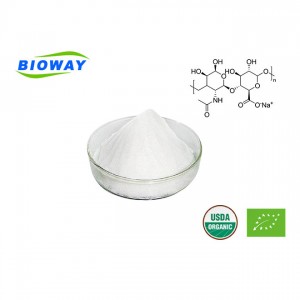Lycorine Hydrochloride
Lycorine hydrochloride is a white to off-white powder derivative of the alkaloid lycorine, which is found in plants of Lycoris radiata (L’Her.), and belongs to the Amaryllidaceae family. Lycorine hydrochloride has various potential pharmacological effects, including anti-tumor, anti-cancer, anti-HCV, anti-inflammatory, anti-bacterial, anti-virus, anti-angiogenesis, and anti-malaria properties. It is soluble in water, DMSO, and ethanol. Its chemical structure is characterized by a complex steroidal framework with a bitter taste with multiple functional groups, including hydroxyl and amino groups, contributing to its biological activities.
| Product name | Lycorine hydrochloride CAS:2188-68-3 | ||
| Plant Source | Lycoris | ||
| Storage condition | Store with a seal at room temperature | Report date | 2024.08.24 |
| Item | Standard | Result |
| Purity(HPLC) | Lycorine hydrochloride ≥98% | 99.7% |
| Appearance | Off-white powder | Conforms |
| Physical characteristics | ||
| Particle-size | NLT100% 80 Mesh | Conforms |
| Loss on drying | ≤1.0% | 1.8% |
| Heavy metal | ||
| Total metals | ≤10.0ppm | Conforms |
| Lead | ≤2.0ppm | Conforms |
| Mercury | ≤1.0ppm | Conforms |
| Cadmium | ≤0.5ppm | Conforms |
| Microorganism | ||
| Total number of bacteria | ≤1000cfu/g | Conforms |
| Yeast | ≤100cfu/g | Conforms |
| Escherichia coli | Not included | Not detected |
| Salmonella | Not included | Not detected |
| Staphylococcus | Not included | Not detected |
| Conclusions | Qualified | |
Features:
(1) High Purity: Our product is meticulously processed to ensure a high level of purity, which is crucial for its effectiveness and safety in various applications.
(2) Anticancer Properties: It has demonstrated significant anticancer effects against a variety of cancer types, both in vitro and in vivo, through mechanisms such as inducing cell cycle arrest, triggering apoptosis, and inhibiting angiogenesis.
(3) Multitargeted Action: Lycorine hydrochloride is believed to interact with multiple molecular targets, offering a broad-spectrum efficacy against cancer cells.
(4) Low Toxicity: It exhibits low toxicity to normal cells, which is an important factor in its potential use as a therapeutic agent.
(5) Pharmacokinetic Profile: The product has been studied for its pharmacokinetics, showing fast absorption and rapid elimination from the plasma, which is important for dosing and therapy planning.
(6) Synergistic Effects: Lycorine hydrochloride has shown enhanced effects when used in combination with other drugs, which can be beneficial in overcoming drug resistance and improving treatment outcomes.
(7) Research-Backed: The product is supported by extensive research, providing a solid foundation for its use in pharmaceutical development and clinical applications.
(8) Quality Assurance: Rigorous quality control measures are in place throughout the production process to ensure consistency and reliability of the product.
(9) Versatile Applications: Suitable for use in research and development for pharmaceutical applications, including drug discovery and cancer treatment development.
(10) Compliance: Manufactured following GMP standards to ensure the product's safety and efficacy.
(1) Pharmaceutical industry: Lycorine hydrochloride is used in the development of antiviral and anticancer medications.
(2) Biotechnology industry: It is utilized in the research and development of new therapeutic agents and drug formulations.
(3) Natural product research: Lycorine hydrochloride is studied for its potential health benefits and medicinal properties.
(4) Chemical industry: It may be used as a chemical intermediate in the synthesis of other compounds.
(5) Agricultural industry: Lycorine hydrochloride has been investigated for its potential as a natural pesticide and plant growth regulator.
The extraction process of lycorine hydrochloride usually includes the following key steps to ensure the purity of the solvent and improve the recovery rate:
(1) Raw material selection and pretreatment: Select appropriate Amaryllidaceae plant raw materials, such as Amaryllis bulbs, and wash, dry and crush them to ensure the purity of the raw materials and lay the foundation for subsequent extraction.
(2) Composite enzyme pretreatment: Use complex enzymes (such as cellulase and pectinase) to pretreat the crushed raw materials to decompose plant cell walls and improve subsequent extraction efficiency.
(3) Dilute hydrochloric acid leaching: Mix the pretreated raw materials with dilute hydrochloric acid solution to extract lycorine. The use of hydrochloric acid helps to increase the solubility of lycorine, thereby improving extraction efficiency.
(4) Ultrasonic-assisted extraction: The use of ultrasonic-assisted extraction technology can accelerate the dissolution process of lycorine in the solvent and improve extraction efficiency and purity.
(5) Chloroform extraction: Extraction is performed with organic solvents such as chloroform, and the lycorine is transferred from the aqueous phase to the organic phase to further purify the target compound.
(6) Solvent recovery: After the extraction process, the solvent is recovered through evaporation or distillation to reduce solvent consumption and improve economy.
(7) Purification and drying: Through appropriate purification and drying steps, pure lycorine hydrochloride powder is obtained.
Throughout the entire extraction process, controlling the solvent selection, extraction conditions (such as pH value, temperature, and time), and subsequent purification steps is the key to ensuring solvent purity and improving the recovery rate. The use of modern extraction and purification equipment, such as ultrasonic extractors and high-performance liquid chromatography (HPLC) systems, also helps improve extraction efficiency and product quality.
Storage: Keep in a cool, dry, and clean place, Protect from moisture and direct light.
Bulk Package: 25kg/drum.
Lead Time: 7 days after your order.
Shelf Life: 2 years.
Remark: Customized specifications also can be achieved.

Express
Under 100kg, 3-5Days
Door to door service easy to pick up the goods
By Sea
Over300kg, Around 30 Days
Port to port service professional clearance broker needed
By Air
100kg-1000kg, 5-7Days
Airport to airport service professional clearance broker needed

Bioway Organic has gotten USDA and EU organic, BRC, ISO, HALAL, KOSHER, and HACCP certificates.

Lycorine is a naturally occurring alkaloid that can be found in several plants, particularly within the Amaryllidaceae family. Here are some plants known to contain lycorine:
Lycoris radiata (also known as the red spider lily or manjushage) is a traditional Chinese medicinal herb that contains lycorine.
Leucojum aestivum (summer snowflake), is also known to contain lycorine.
Ungernia sewertzowii is another plant from the Amaryllidaceae family that has been reported to contain lycorine.
Hippeastrum hybrid (the Easter lily) and other related Amaryllidaceae plants are known sources of lycorine.
These plants are widely distributed in tropical and subtropical regions around the world and have a long history of use in traditional medicine. The presence of lycorine in these plants has been the subject of research due to its potential pharmacological properties, including its significant anticancer effects as demonstrated in various studies.
Lycorine is a natural alkaloid with a wide range of pharmacological effects, including its potential use in cancer treatment. While it has shown promising results in various studies, there are some reported side effects and considerations associated with its use:
Low Toxicity: Lycorine and its hydrochloride salt generally exhibit low toxicity, which is a favorable characteristic for clinical applications. It has been shown to have minimal adverse effects on normal human cells and healthy mice, suggesting a certain level of selectivity for cancer cells over normal tissues.
Transient Emetic Effects: Transient nausea and vomiting have been observed following subcutaneous or intravenous injection of lycorine hydrochloride, usually subsiding within 2.5 hours without affecting biochemical or hematological safety .
No Impaired Motor Coordination: Studies have shown that serial doses of lycorine do not affect motor coordination in mice, as tested by the rotarod test, indicating that it does not lead to central nervous system (CNS) side effects related to motor control.
Impact on Spontaneous Locomotor Activity: At a dose of 30 mg/kg, lycorine has been observed to impair spontaneous locomotor activity in mice, as indicated by a decrease in rearing behavior and an increase in immobility.
General Behavior and Well-being: A dose of 10 mg/kg of lycorine did not impair general behaviors and well-being of mice, suggesting that this could be an optimum dose for future therapeutic efficacy assessments.
No Significant Adverse Effects on Body Weight or Health Status: Administration of lycorine and lycorine hydrochloride did not cause noticeable side effects on body weight or overall health status in tumor-bearing mouse models.
It is important to note that while lycorine has shown potential in preclinical investigations, long-term toxicity assessments are still lacking. Further research is needed to fully understand its safety profile, particularly for long-term use and in clinical settings. The side effects and safety of lycorine may vary depending on dosage, method of administration, and individual patient characteristics. Always consult with a healthcare professional before considering the use of any new supplement or treatment.


















